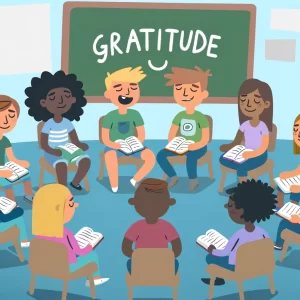
The Impact of Adolescent Trauma
The article, “Life should go on”: a qualitative inquiry of parental reactions, experiences, and perceived needs following adolescents’ recent traumatic exposure, dives deep into the challenges parents face in supporting adolescents who have experienced trauma.
Trauma’s Impact on Adolescents and Families
Adolescents who experience trauma display a range of behavioral and emotional changes that are often challenging for parents and caregivers to manage. These changes can include difficulties in emotion regulation, hypervigilance, and withdrawal. Such behaviors not only signal the adolescents’ struggle to cope with their experiences but also profoundly affect family dynamics and the parent-child relationship.
The Role of School Psychologists
School psychologists and mental health professionals play a crucial role in supporting these families. They are positioned uniquely to understand and intervene in the aftermath of traumatic exposure. A few critical areas where they can make a difference include:
- Educating Parents and Caregivers: Educating parents about trauma and its effects can be transformative. School psychologists can explain common reactions to trauma, thus helping parents make sense of their child’s behaviors.
- Facilitating Parent-Child Communication: Encouraging open, honest, and sensitive communication between parents and adolescents is vital. Professionals can guide parents on how to talk about trauma without exacerbating the child’s stress.
- Collaboration with Schools: School avoidance is a common issue following trauma. Psychologists can advocate for and facilitate a trauma-informed approach in schools, helping educators understand and respond to the needs of traumatized students.
- Addressing Stigma and Social Isolation: Parents often struggle with feelings of isolation and stigma. Mental health professionals can provide platforms for peer support and community engagement, reducing the sense of isolation parents may feel.
- Empowering Parents: By supporting parents in their role, professionals can help them move from feelings of helplessness to becoming proactive supporters of their child’s recovery. This includes understanding when to give space and when to intervene.
Conclusion
Adolescent trauma has a ripple effect, impacting not just the individuals directly affected but their families and broader school communities. School psychologists and related professionals have a crucial role in supporting these ecosystems, promoting healing, and fostering resilience. By engaging in informed, empathetic, and proactive strategies, they can make a significant difference in the lives of these young individuals and their families.
Join the Educational Revolution!
Begin your adventure with This Week in School Psychology for only $5 a month or $50 annually. Be at the forefront of educational breakthroughs and mental health insights. Subscribe to become a beacon of knowledge in your community, simplifying the complex world of educational research. Why wait? Ignite your passion for learning today and enjoy exclusive savings with our annual plan!



